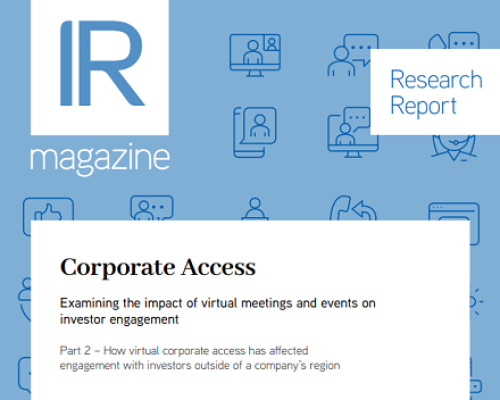Thoughts on what MiFID II is likely to mean for research and corporate access
The newswires have been flooded with reports that there will be a delay to the MiFID II implementation date – perhaps by a year, to January 2018. The reports are well sourced and the accepted view on the Street is that MiFID has been delayed.
But there has been no official delay – and these calls for delay are controversial. The only things we can say for certain are that there are strong and opposing views within ESMA, the European Commission and the European Parliament, and that MiFID is in a mess.
For now the January 2017 implementation date still stands. It is possible to change the date, but this requires agreement between the three European institutions: the Commission, the Parliament and the Council of Ministers. At the moment they appear unable to agree on anything.
The most likely outcome is that the existing implementation date remains intact, but with guidance on a phased implementation and delayed enforcement. Europe will indicate which parts of what is an enormous bill matter most and where they will allow more time to implement complex new systems.
There is precedent for this sort of approach and it would seem the best way to simultaneously recognize real concerns in the industry that implementation timelines in some areas are too tight, while addressing concerns in the Parliament that we are already lagging well behind on implementing G20 commitments.
That said, the actual implementation date is largely a sideshow. All the clamouring for a delay is because the industry worries about the compressed implementation timetable – firms are itching to get started.
What matters far more is the final content of the bill – and here significant uncertainty remains, as the delegated acts have not yet been published. As soon as they are though, implementation work will begin, and firms will work as fast as they can to become MiFID-compliant. We should see publication of the acts before the end of the year and in several critical areas the mist is now beginning to clear.
Specifically with regard to two of the most controversial areas which matter most to the IR profession, research and corporate access, we can now join the dots and work out the most likely outcome.
MiFID II will step back from the most controversial proposals surrounding research. Research Payment Accounts (RPAs) can be funded by Commission Sharing Agreements (CSAs), subject to proper, documented caps and budgets, and use of CSAs/RPAs will be mandated for any use of client commissions to pay for research. Corporate access is not research and will be confirmed as an inducement under MiFID II.
This treatment will be greeted with a sigh of relief by the industry, but it will nevertheless lead to significant changes to existing market practice:
- It means client commissions can still be used to pay for Research, but with onerous controls attached. This can be done only if properly unbundled from execution and with record keeping and reporting surrounding what is received, used and how those payments are determined
- Allowing client monies to be used to pay for research requires explicit treatment of corporate access as an inducement, otherwise client money could be used to pay for meetings, which would be unacceptable. Treatment as an inducement under MiFID is material and goes further than the changes introduced in the UK by the Financial Conduct Authority. Under MiFID, inducements cannot be offered, or received, ‘for free’. They need to be priced on a true, standalone basis.
In practical terms for research, MiFID II will look quite like the status quo best practice in this area, but with more control and record keeping attached. For corporate access it is a major change and means the end of the ‘free’ roadshow. These services will have to be priced and paid for. The question now is who will pay for these services – corporates or investors?
That is something for the market to decide. Either way, investors and IROs will not want to wait for implementation to look for a new solution – they will want to begin preparing for the new environment as soon as the definitive final rules are clear.
Michael Hufton is founder and managing director of ingage IR, a UK-based start-up in IR software and corporate access










